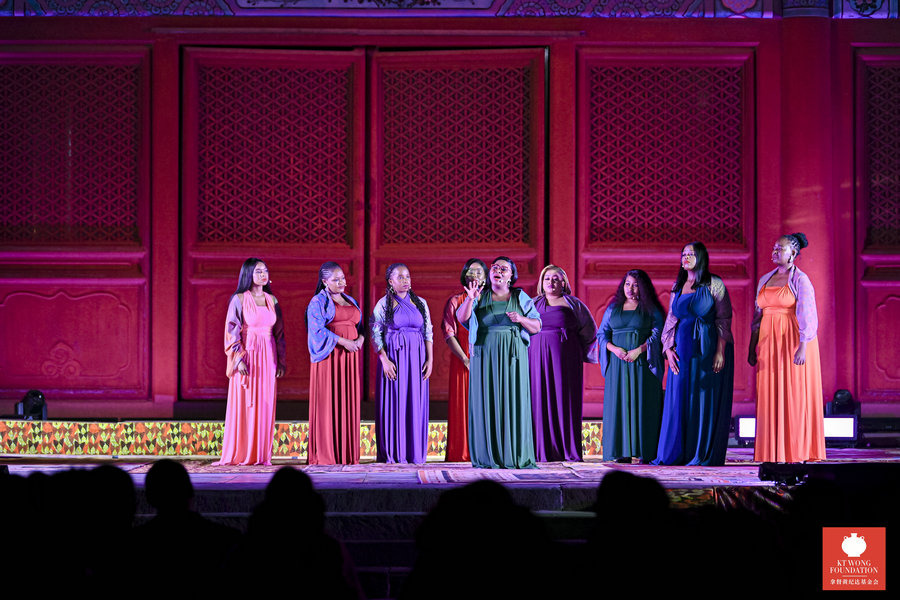Global cultural diversity on display


This year marks an important milestone in promoting cultural diversity, as well as the 20th anniversary of the adoption of the UNESCO convention.
"The framework of the convention fully recognizes the significance of intangible cultural heritage in empowering and ensuring sustainable development," Shahbaz Khan, representative of UNESCO Multi-sectoral Regional Office for East Asia, said as he addressed the forum via a video.
"It is not just a piece of paper; it is a guiding light that directs us in protecting and promoting intangible cultural heritage."
The forum brought together experts from home and abroad to delve into the essence and value of cultural heritage, the creation of a legal system for cultural heritage protection, and to share outstanding international cases in the field of cultural heritage protection.
"The theme (of this forum) requires us to reflect on the progress we have made and the challenges we will face in the future. It urges us to innovate and find new ways to pass on knowledge and skills to the next generation, calling on us to embrace cultural diversity," Khan said.
"Our world is changing rapidly, and our traditions and customs are evolving with it. It is our responsibility to ensure that these precious elements within our cultural identity do not vanish amid the waves of modernization," he added.

The festival's host city of Chengdu has been living up to the UNESCO convention over the years, said Chen Zhiyong, the city's vice-mayor, at the forum.
"We have continued to step up efforts to protect intangible cultural heritage projects and inheritors, and have improved the management system for the intangible cultural heritage list," Chen said.
To date, the city has developed some 220 representative intangible heritage projects, 50 intangible heritage inheritance bases, and 10 intangible heritage industrial clusters.
"This has enabled the creative transformations and innovative developments of intangible cultural heritage across generations, making a positive contribution to China's intangible heritage protection efforts," Chen added.
In 2004, China joined the convention that now counts 181 states as members and which plays a positive role in delivering fruitful results in international intangible cultural heritage protection.
"The Chinese government has always attached great importance to the protection of intangible cultural heritage," Wang Chenyang, director of the intangible cultural heritage department at the Ministry of Culture and Tourism, says.





































